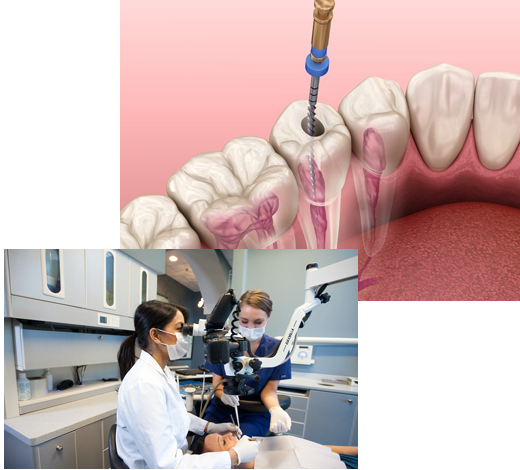Root Canal Treatment a non-surgical method used to repair, conserve, and maintain natural dentition that has been permanently destroyed owing to trauma or injury, decay, or medical/systemic issues. The treatment's purpose is to reduce and prevent widespread infections. The injured nerve or pulp is removed during the root canal procedure, and the interior of the tooth is cleansed and cleaned before being re-sealed. An impacted tooth with compromised nerve tissue may cause considerable injury to a patient's natural dentition if left untreated. Contact Queen’s Plate Dental Clinic in Etobicoke today for more information on root canal treatment.

Here some of the more common symptoms and telltale signs that you may need to get a root canal:
It should be noted that there are cases for a root canal even when no symptoms are present.
Root Canal procedures at Queen's Plate Dental in Etobicoke are typically performed over the course of one, two, or more appointments, contingent upon the complexity and severity of the case as well as the patient's tolerance level.
Following a root canal procedure at Queen’s Plate Dental in Etobicoke, it is normal to experience minimal to moderate discomfort for the first 24 to 48 hours; however, the pain is rarely persistent. It is recommended that patients exercise caution in their dining, grooming, and flossing routines for a few days after treatment.
With an over 95% success rate, root canal treatments art Queen’s Plate Dental are highly effective when correctly maintained. The majority of teeth that are repaired through endodontic treatment are permanent. If you are in need of a root canal treatment, contact Queen’s Plate Dental in Etobicoke and book a consultation.
